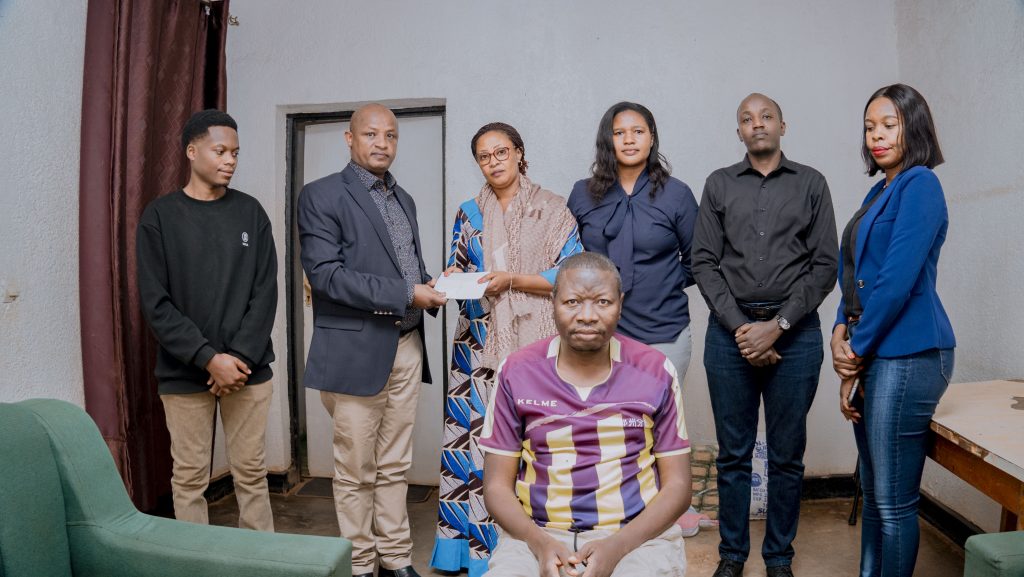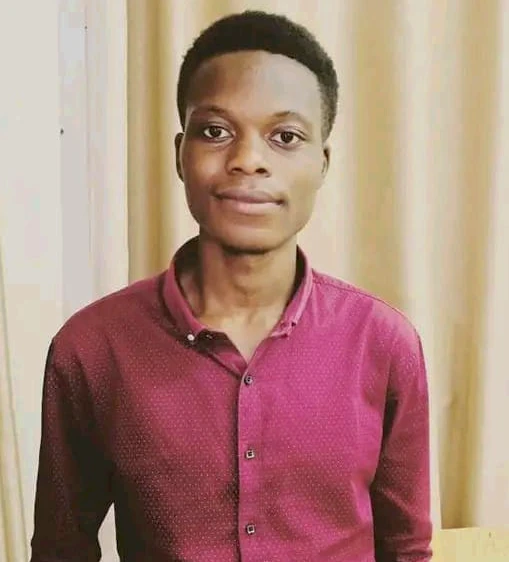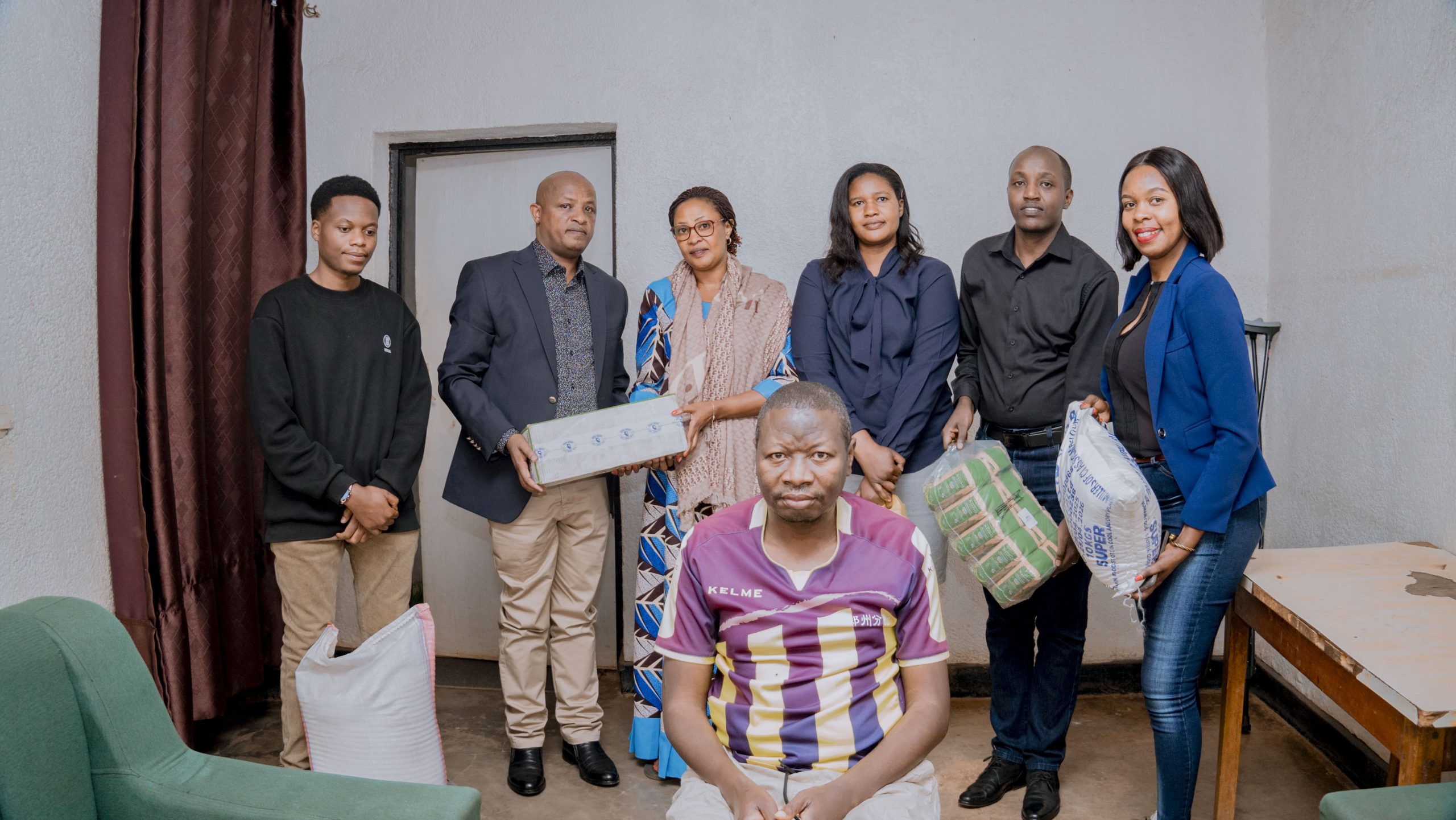In a poignant act of solidarity and remembrance, Mount Kigali University has provided significant financial assistance to the family of a 1994 Genocide against the Tutsi survivor, highlighting its ongoing commitment to supporting those affected by the atrocities.
The donation was made to the family of Umutoni Claudine and Harindimana Emmanuel, residents of Juru Village, Nyanza Cell, Gatenga Sector in Kicukiro District.
Umutoni Claudine, who lost her entire family during the 1994 Genocide when she was just 10 years old, has spent decades trying to rebuild her life. Her challenges worsened in recent years due to her husband’s deteriorating health condition.
Emmanuel has suffered two serious accidents. The first was on March 5, 2025, and the second on June 10, 2025, during which he broke his leg.
These incidents have left him chronically ill for over three years, unable to walk or work, placing the burden of caregiving and providing for their six children solely on Claudine.
Upon learning of the family’s difficult situation, university officials acted swiftly. On July 10, a delegation led by Dr. John Nyiligira, Deputy Vice-Chancellor in charge of Finance and Administration, visited the family at their home to deliver much-needed support.
The assistance provided included essential household items, food supplies, and financial support, all intended to directly improve the family’s daily living conditions.
“As an institution deeply rooted in values of humanity and unity, we consider supporting survivors both a duty and a privilege,” stated Dr. Nyiligira during the visit. “This donation is a modest gesture to assure them they are not alone. We stand with them in solidarity.”
Visibly moved, Umutoni Claudine expressed her profound gratitude. “I never imagined that people I didn’t know would come to our home with such kindness,” she shared. “This gift is more than just material things; it reminds me that I’m not forgotten, that someone acknowledges my struggle.”
Mount Kigali University’s outreach is part of its broader social responsibility initiatives. Each year, the university organizes various activities not only to commemorate the 1994 Genocide against the Tutsi but also to offer direct, tangible assistance to survivors in need.
“It is not enough merely to remember; we must also act,” Dr. Nyiligira emphasized. “Our commitment to the survivors extends beyond ceremonies. It is lived out through compassion, genuine connection, and active community support.”






